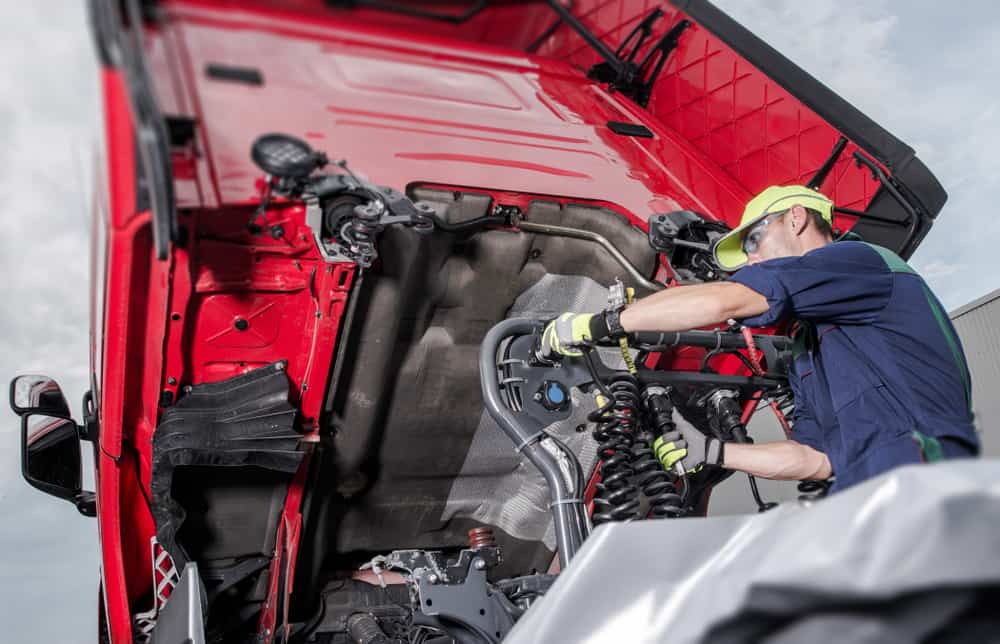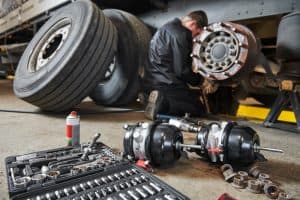Maintaining Trailer Safety in Wayne County, MI, and Monroe County, MI

The Importance of Routine Inspections
Routine inspections are the backbone of maintaining a safe and reliable semi-trailer in Wayne County, MI, and Monroe County, MI. Whether you’re a long-haul trucker, a logistics company, or an owner-operator, the safety of your semi-trailer should always be a top priority.
Regular inspections not only ensure the safety of your vehicle but also help you avoid costly breakdowns and repairs down the road. Moreover, they are essential for complying with regulatory requirements and preventing accidents on the highways.
What Does a Routine Inspection Entail?
A comprehensive routine inspection covers various aspects of your semi-trailer, including:
- Brake System: Ensuring your brakes are in good working order is vital for safety. Inspectors check for brake pad wear, hydraulic fluid levels, and proper brake adjustment.
- Tire and Wheel Inspection: Tires should be properly inflated and have adequate tread depth. Wheel components, such as nuts and bolts, are examined for tightness.
- Suspension and Axle Inspection: Inspectors examine the suspension system for wear and tear. They also check axles, leaf springs, and shock absorbers.
- Lights and Electrical Systems: Ensuring all lights are functioning correctly is crucial for visibility on the road. Inspectors also check the electrical connections and wiring.
- Coupling and Hitch Mechanism: The coupling system should be inspected for proper connection and security.
Frame and Chassis Inspection: The trailer’s frame and chassis are inspected for structural integrity, including signs of corrosion or damage.
How Often Should You Inspect Your Semi-Trailer?
The frequency of routine inspections can vary; however, it is generally recommended to perform inspections at regular intervals, such as before and after long trips, or on a monthly basis. Additionally, there may be specific regulations regarding inspection intervals in Wayne County, MI, and Monroe County, MI, so it’s important to stay compliant. In some cases, semi-trailer owners may choose to have inspections performed more frequently to ensure the highest level of safety and reliability.
Trust J&J Truck & Trailer Repair for Routine Inspections
When it comes to routine inspections for your semi-trailer, you need a reliable and experienced partner. That’s where J&J Truck & Trailer Repair comes in. Our team of skilled technicians has years of experience in conducting thorough semi-trailer inspections. We understand the unique needs of semi-trailer owners and operators in Wayne County, MI, and Monroe County, MI, and we are committed to keeping your vehicles safe and reliable.
Don’t compromise on safety – contact J&J Truck & Trailer Repair today for professional routine inspections that will give you peace of mind on the road.
Prioritize Safety with Routine Inspections
Routine inspections for a safe and reliable semi-trailer are not just a legal requirement but also a responsible choice for anyone involved in the transportation industry. Ensuring that your semi-trailer is in optimal condition can prevent accidents, save lives, and reduce operating costs.
In Wayne County, MI and Monroe County, MI, J&J Truck & Trailer Repair is your trusted partner for all your semi-trailer inspection needs. Our expertise, commitment to safety, and convenient location make us the top choice for semi-trailer owners and operators.
Schedule Your Routine Inspection Today
Routine inspections for your semi-trailer in Wayne County, MI, and Monroe County, MI, are non-negotiable when it comes to safety and reliability. J&J Truck & Trailer Repair is your go-to partner for expert inspections tailored to the unique challenges of the region. Don’t compromise on safety – contact us today to schedule your inspection and ensure your semi-trailer is in top-notch condition. Drive safely, drive confidently, and choose J&J Truck & Trailer Repair for your routine inspection needs.



